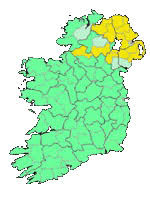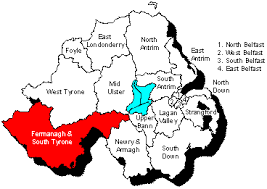Simpson's argument is that if you apply the Barnett formula to the total of £6bn you do get £200m. However, because of the possible ringfencing of the health budget, which accounts for about half of Northern Ireland's Departmental Expenditure Limits, it potentially falls to £100m with other Barnett consequentialls reducing that further to as low as £60m. However, two problems with those sums.
First the real level of additional cuts in public expenditure the Tories propose is £12 billion. The £6 billion figure is the net reduction on the economy as half of the £12bn savings are to stop Labour's proposed National Insurance increase. Therefore, the potential starting figure under Barnett is £400m. Therefore a £200m isn't an exaggeration but a reasonable one.
Second, the ring-fencing of a budget in England and Wales does not automatically mean the same for the comparable DEL in the devolved areas. So the protection he perceives is by no means guaranteed as Barnett consequentials are at the Treasury's discretion, doesn't take account of the different proportion the health budgets as part of total government expenditure and to protect one budget you have to have deeper cuts elsewhere.
Also a recent example further undermines Simpson's figures. Labour announced £5bn in cuts and the Barnett consequential for Northern Ireland was a £122m cut well above Simpson's estimate of £60-100m for £6bn cuts. It may also be worth mentioning that according to the independent think tank the Institute of Fiscal Studies, the Tory proposals for the lifetime of this parliament are for £59.4 billion cuts in Departmental Expenditure Limits.










